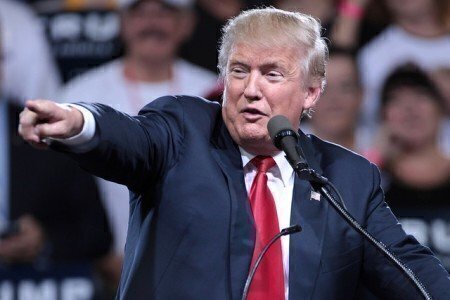President-elect Donald J. Trump might have some unique decisions to make about how his business assets are managed as he serves in the White House, thanks to an obscure constitutional clause.

Article I, Section 9, of the Constitution contains what is known as the Foreign Emoluments Clause, which reads, “no Person holding any Office of Profit or Trust under them, shall, without the Consent of the Congress, accept of any present, Emolument, Office, or Title, of any kind whatever, from any King, Prince, or foreign State.”
An emolument is defined by Merriam-Webster as “the returns arising from office or employment usually in the form of compensation or perquisites.” On Tuesday, the New York Times’ Adam Liptak wrote about a possible debate about how the clause needs to be evaluated as it applies to Trump’s business holdings. (Editor’s note: the newspaper and President-elect Trump are involved in an on-going dispute about its coverage of the former presidential candidate.)
Liptak said that legal experts believed current arrangements, such as the Bank of China renting space in New York’s Trump Tower, could be called into question. But there is also very little precedent for someone with Trump’s business holdings assuming the presidency.
“The Supreme Court has never squarely considered the scope of the clause, and there are no historical analogies to help understand how it should apply to a president who owns a sprawling international business empire,” Liptak said.
He also quoted at length two scholars who wrote about the Foreign Emoluments Clause for the National Constitution Center’s Interactive Constitution project: Zephyr Teachout a law professor at Fordham and Seth Barrett Tillman, a lecturer at the Maynooth University Department of Law in Ireland.
In a joint essay for Interactive Constitution, the two scholars agreed that the application of the Foreign Emoluments Clause to elected officials is subject to debate.
“The question whether … the Constitution’s Foreign Emoluments Clause, reaches any or all federal elected positions—i.e., Representative, Senator, Vice President, President, and presidential elector—poses a difficult interpretive challenge,” Teachout and Tillman said.
“George Washington, while President, accepted and kept two diplomatic gifts, but he never asked for or received congressional consent. However, subsequent presidents, such as Andrew Jackson, in similar circumstances, sought congressional consent. Whose practice should we rely on?” they asked.
Teachout and Tillman said there was evidence that the clause signaled the Founders’ commitment to counter corruption, “but the validity of such interpretations, which rely in large part on Framers’ intentions rather than specific constitutional text, is highly controversial.”
As for the case of President-elect Trump, it remains to be seen how Trump will structure and handle his business interests as Inauguration Day approaches. Federal election documents show that Trump has financial interests in more than 500 domestic and foreign firms.
Liptak does point out that there is another debate: about the ability or standing of anyone to sue a President who violates the Emoluments Clause. And also Congress would have some say in the matter, since it can offer consent under the Emoluments Clause and it also has impeachment powers to deal with constitutional violations.
Read more from our Interactive Constitution from our two scholars:The Foreign Emoluments Clause By Zephyr TeachoutThe Foreign Emoluments Clause Reached Only Appointed Officers By Seth Barrett Tillman







